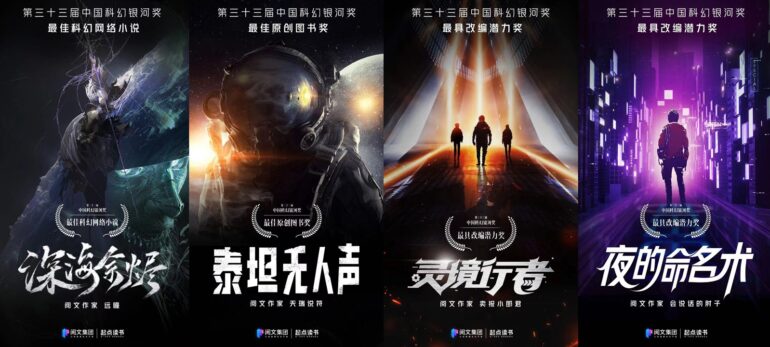TL;DR:
- China Literature Limited introduces Yuewen Miaobi, an Artificial Intelligence Generated Content (AIGC) Large Language Model (LLM).
- The AI “pen” assists online literature authors by reducing repetitive and time-consuming tasks.
- Yuewen Miaobi intelligently generates names and function tags for objects in the story.
- Its adaptability helps with character development and detailed scene descriptions.
- The LLM suits logical and routine-like works in the online literature industry.
- Concerns regarding plagiarism and un-reviewed sensitive content need to be addressed.
Main AI News:
China Literature Limited, a prominent player in the online literature market, has launched a groundbreaking development that is set to transform the way writers in the industry craft their narratives. Meet Yuewen Miaobi, the nation’s first Artificial Intelligence Generated Content (AIGC) Large Language Model (LLM), exclusively designed to empower and aid online literature authors in their creative endeavors.
Huang Yan, Vice President of China Literature Limited, emphasized that the AI-driven tool, fondly referred to as the “Great Pen for Online Literature,” seeks to streamline and optimize the writing process for authors. By intelligently reducing the burden of repetitive and time-consuming tasks, Yuewen Miaobi enables writers to focus on the essence of their storytelling.
Imagine an author yearning for a “treasure tool for a fantasy novel.” With Yuewen Miaobi at their disposal, they can effortlessly input the scenario and object data, prompting the AIGC tool to respond with a fitting name, such as the intriguing “Fire Dragon Ball.” The AI-driven masterpiece also provides handy tags, effectively describing the object’s function as “used for restoring fiery energy.”
A standout feature of this revolutionary tool is its remarkable adaptability, catering to a diverse array of settings and genres. With unmatched proficiency, Yuewen Miaobi assists writers in creating well-rounded characters and crafting vivid, intricate descriptions of the story’s environments.
Li Yilun, an esteemed figure within the online literature industry, commended this intelligent design, recognizing its potential to elevate storytelling to new heights.
Though Yuewen Miaobi’s prowess seems tailor-made for the online literature domain, it has yet to achieve widespread adoption in the field, as noted by Liu Dingding, an independent technology analyst. He lauded its effectiveness in handling logical and routine-like works, showcasing the LLM’s compatibility with the industry.
Despite its professional efficiency, the use of AI in literature creation is not without debate. Concerns surrounding plagiarism and un-reviewed sensitive content have been raised. Liu urged the platform to implement stringent supervision over the tool’s application, suggesting pre-filtration of sensitive words within the system to mitigate potential issues.
Conclusion:
China’s pioneering launch of Yuewen Miaobi, an AI-driven tool for online literature, signals a significant advancement in the market. By automating repetitive tasks and enhancing the creative process, this innovation is expected to boost cost-effectiveness and productivity for authors. However, careful oversight and measures to address potential issues like plagiarism and sensitive content are crucial for ensuring ethical and successful adoption in the industry. As writers and readers embrace this technological evolution, the future of online literature is poised to thrive with a harmonious blend of human ingenuity and AI capabilities.

